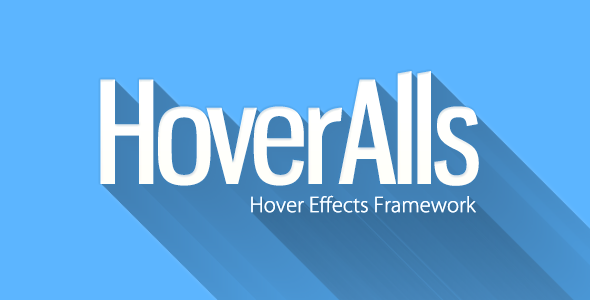UPDATE:

I have received a response from the IRS concluding that I performed services as an employee. If you currently work for Envato as an indepdendent contractor in the United States (or another country with similar labor laws such as Australia), there is a very high likelihood that you are misclassified.
This means that you are carrying the tax burden of the company for them and missing out on overtime pay, vacation pay, benefits and legal protections. You are able to amend previous tax years from Schedule C to W2 status in order to recover some of your money lost to paying small business taxes when it was Envato's obligation.
Additionally, I remain unable to recover money owed for reviewing files on ThemeForest and CodeCanyon, however should now be able to move forward with the Department of Labor and Wage and Hour Division to reconcile this as well as various other Fair Labor Standards Act violations.
The IRS investigator has assured me that I am allowed to make this document public as it pertains to my working relationship with the company.
If you were or are a contractor in the US, please contact me.
after working for Envato for 8 years
I was dismissed without notice during the COVID-19 pandemic
I was a content reviewer for GraphicRiver, CodeCanyon and ThemeForest. One day back in October I was invited to a random video chat... no subject matter. It was a Tuesday - and unusual. Out of nowhere and for no fault of mine - I
was dismissed at a peak time for COVID-19 and unemployment in the US.
My contract guaranteed 4 weeks written notice prior to termination.
Instead, Envato Pty Ltd / Envato USA, Inc. decided to circumvent clear terms within our contract in order to send me
this release form.
I was given 72 hours to sign it if I wanted to collect a "generous severance offer" - which just so happened to be equivalent to 4 weeks scheduled pay.
Coercive, bully-tactics are becoming a common occurance with employers. Contracts exist for one reason - to establish trust and
understanding between parties. If we could all trust each other - contracts would not exist. For this reason - it is vitally important
to highlight when companies breach terms of their own contracts with workers and vendors.
Simple. If you don't want this conduct advertised - don't act this way.
But, what exactly does Envato have to gain with this release? Many companies ask workers to sign release forms at termination.
However, this is not a standard release. The form itself is rather transparent and outlines - exactly what Envato does not want to be liable for.
Signing this release means I would "waive entitlement to advance notice of termination"... and release all claims including those related to
"breach of contract" and "implied covenant of good faith and fair dealing"... how convenient...
but more importantly "all claims directly or indirectly arising with your engagement, or your relationships with any of the released parties stemming from your
engagement with the company"...
... what does it mean by engagement? ...
Since 2013, I have suspected Envato of misclassifying workers based on how they engaged US contractors.
Why is that a big deal? Companies that use independent contractors
to fill employee roles are able to push their tax obligations onto their workers. For US contractors like myself, the portion of
Medicare and Social Security taxes that an employer would typically pay was my responsibility - and was paid every year as part of my self employment taxes. In
addition, states lose out on taxes that a business would typically owe for having employees - such as unemployment. This makes misrepresenting workers as
independent contractors incredibly inexpensive in comparison - and ultimately allows a business to afford ~30% more human capital than their competition - which directly
translates to rapid growth.
Companies exist for the bottom line. It is not unusual for a business to weigh profitability against legal compliance.
Sometimes the cost and fines associated with breaking the law are easily written off as a cost of doing business.
While this approach may indeed render better business results - somebody has to pay the price.
I questioned Envato's engagement practices many times - sending links to the
IRS guidelines as well as the US Department of Labor Fact Sheet 13.
I acted in good faith - assuming Envato wasn't familiar with US labor laws. They are an Australian company and technically did not
have any US presence until around 2016.
Requests for clarification were ignored - even those asked by other contractors. At the beginning of 2020, the Uber misclassification battle had
hit a boiling point when California Assembly Bill 5 (AB5) went into effect.
I believe it is not a coincidence that I was dismissed in such a coercive manner only months later.
It remains a possibility that the timing and nature of dismissal was calculated and opportunistic.
regarding misclassification - all remains conjecture at this point...
I chose not to sign the release form. Primarily because of Envato's breach of contract, but more
importantly the unbelievable disregard of human welfare during such a tragic time.
Just months prior, Envato had guaranteed not to dismiss workers during COVID.
I requested arbitration since my contract required me to arbitrate any disputes - which many companies now use
to keep legal and civil violations quiet and shield themselves from class action lawsuits.
Envato ignored my request, so I paid an attorney to send a demand letter for unpaid wages. This was also ignored.
So, I hired a different attorney specializing in misclassification. The first issue to address was an attempt
to collect $580.32 for hours worked in October as well as the "severance offer". While I was never entitled to any type of severance,
I am contractually entitled to 4 weeks written notice. Breach of contract was clear and confirmed - making damages under US contract law exactly the
same as their severance offer. Envato's bully tactics had been confirmed.
A demand letter was sent and ignored, but serves as a written opportunity for Envato to rectify the situation.
In accordance with terms of my original contract I no longer recognize any contractual obligations from my previous engagement
- including any non-disparagement agreement or confidentiality and hereby terminate all prior agreements.
Envato still owes me $580.32 for hours worked in October...
Envato is very much aware of this fact - and my efforts. Why not just sue in small claims court for breach of contract?
Seems like the easiest and least expensive approach.Indeed, this is where I started. Unfortunately, the state
of South Carolina does not currently recognize Envato USA, Inc. as a business entity.
Extremely odd, considering they have had W2 employees in South Carolina recently. There must be some type of record on file with the state for paying taxes?
When I explained the situation to the South Carolina Department of Revenue, I was forwarded to a special agent at the Criminal Investigation
Nexus Branch and an investigation began. I'm not sure where that will lead and due to privacy concerns I will not hear the results.
Simply put - the state has no legal authority over Envato USA, Inc - because they do not exist in South Carolina.
This means that no state level government agency
(such as the Department of Labor that protects US worker rights violations) can exercise law over Envato USA, Inc - including courts.
Digging deeper, I discovered Envato USA, Inc is only recognized in Utah and California. There are many contractors working in other states that
are legally powerless regarding any civil or legal matters that may arise from Envato's actions. Should the company decide to breach any other
existing contracts - including non-payment, those workers have absolutely no legal protections.
... court is not an option due to jurisdiction ...
Attempted communication with Envato Pty Ltd / Envato USA, Inc was going nowhere.
I have spent the last 3 months discussing my situation with the Fair Work Ombudsman in Australia,
numerous Department of Labor investigators, Wage and Hour Division investigators, state advocates, tax advocates and multiple attorneys
(specializing in contract law and misclassification). After the second demand letter, Envato finally responded - presenting the same opportunity
to submit an invoice and sign the release for payment. I was given an option: take the money or do what I felt was right.
Months of discussions with state investigators and legal professionals have rendered no result for the sole reason of not having a suitable
jurisdiction to enforce the law. However, on a positive note - they have given me enough confidence in my suspicions of Envato intentionally misclassifying
US workers that I have chosen to leave nearly $5,000 on the table and spend thousands more in pursuit of what is right.
It became clear this matter will only be resolved at a federal level.
At the end of December, the IRS received 5 pounds of records and (what I consider) indicative proof
surrounding how Envato has engaged US workers - in addition to documented discussions surrounding classification dating back to 2013.
Many investigators and federal workers assisted me with compiling this request.
For many years I wrote off my suspicions as differences in labor laws and worker protections between our countries.
A lengthy discussion with a Fair Work Ombudsman Investigator made me aware that not only are our laws are quite similar, but
Australia takes things one step further. Individuals that "look the other way" regarding misclassification claims can be held personally accountable.
I agreed to provide the FWO with the results of current investigations.
It is no longer in my hands and I trust that the state and federal agencies will arrive at the clear conclusion to protect the rights of US workers.
... be the change you want to see in the world ...
We all have obligations to each other - businesses are no exception. Everyone is expendable, but working contracts exist to govern what workers can expect
from their employer. It does not entertain me nor satisfy me in any way to make this information public.
I'm not writing this to defame or attack the company - or disuade anyone from doing business with Envato - only to inform.
I have little to gain and much to lose. It is frightening - just like speaking out about misclassification while working for Envato for 8 years.
It is not easy, but we all have a duty to each other to not breach that social contract.
Envato can decide how to best approach this situation. This would not be their first opportunity.
I have carefully crafted this page to make sure all statements are factual and not intended to inflict harm to Envato's bottom line.
In fact, I have reserved a LOT of disparaging facts that have no place in a public arena.
That is not my goal. Envato can sue me - it would be welcomed with a countersuit.
I have exhausted all avenues and legal measures available to me to keep this out of the public eye for 4 months while Envato disregarded my efforts.
For this reason - any communication or actions from this point forward will be made public.
I am not after financial gain and refuse to be bought.
My goal is to have Envato conduct itself within the legal parameters of US law and treat their
US workers with the respect and appropriate pay they deserve.
Instead, I am hoping the company steps back and reflects. See the damage done. Take a more professional approach.
During my last video chat - I mentioned how disgruntled reviewers have
become - it was no secret internally. Survery after survey depicted dramatic decline in sentiment. Renee Nortcliffe (Operations Manager) made it clear
that Envato is very much aware of the discontent. The company has known for years.
Sadly, US contractors work full time and their bottom line would be healthier working as baristas at Starbucks.
Competitive pay and a healthy work environment is reserved for Australian employees - something I have already discussed with "Great Place to Work" awards.
When a business is able to create clear disparities between workers within a country and off-shore, it may be easier to receive such a certification.
Ironically enough, Great Place to Work is headquartered in California, but does not certify Envato USA, Inc.
... reaffirming my integrity ...
How Envato conducts itself as a business is no longer in line with my values.
I have permanently discontinued selling all of my products on the CodeCanyon.
Nearly $10,000 and the indefinite income stream these items were generating has been waived in an effort
to preserve my US worker rights and integrity - that was the right choice.
If you're looking for any of my prior work - you can find it at the more reputable Creative Market (linked below).
... parties involved...
Business is business, and those involved with the events described above should have no problem being associated with their actions.
The names listed below were fully aware of Envato's breach of contract as well as misclassification assertions.
These names will remain attached to this situation and situation indefinitely.
Collis Ta'eed, Cyan Ta'eed, Vahid Gregory Ta'eed, Renee Nortcliffe, Fabian VanCott / Stephen D. Swindle, Natalie Hardie, Richard Tan, Sarah Davoren











